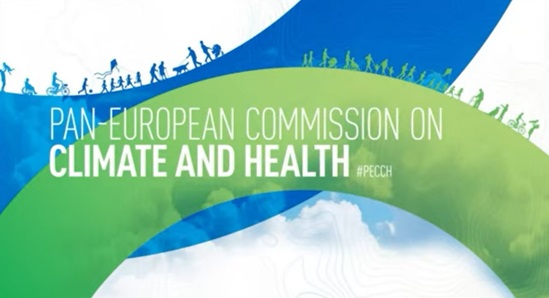Contributing to the global agenda on health, environment and climate change
WHO/Europe is contributing in several ways to the global agenda on health, environment and climate change.
At the global level, the Paris Agreement is the central instrument for achieving a more stable and safer climate for the generations to come. Health has been chosen as a science priority area for the 26th session of the Conference of the Parties (COP26) to the United Nations Framework Convention on Climate Change (UNFCCC) in November 2021. Bringing a stronger focus and ambition on health to the conference, the COP26 Health Programme includes the following key health priorities:
- building climate-resilient health systems;
- developing low-carbon sustainable health systems;
- the inclusion of health priorities in the Nationally Determined Contributions;
- raising the voice of health professionals as advocates for stronger ambition on climate change.
WHO/Europe’s activities on climate change and health are guided by the 2019 WHO Global Strategy on Health, Environment and Climate Change, and the European Programme of Work 2020–2025 – “United Action for Better Health in Europe”.
In the Declaration of the Sixth Ministerial Conference on Environment and Health (Ostrava Declaration, 2017), Member States of the WHO European Region committed to establishing national portfolios of action on environment and health, including on climate change and health.
WHO/Europe provides secretariat functions to the Working Group on Health in Climate Change (HIC), established under the European Environment and Health Task Force. The HIC working group supports Member States in implementing the commitments made in the Ostrava Declaration, as well as their national efforts in advancing the climate change and health agenda.
In support of these processes, WHO/Europe supports its Member States to:
- integrate health considerations in climate mitigation and adaptation decision-making;
- strengthen health systems’ climate resilience;
- strengthen early warning, surveillance and preparedness systems for extreme weather events and disease outbreaks;
- raise awareness on healthy climate policies in all sectors;
- increase the health and environment sectors’ contributions to reducing greenhouse gas emissions and improving environmental sustainability;
- share knowledge, research and tools.









